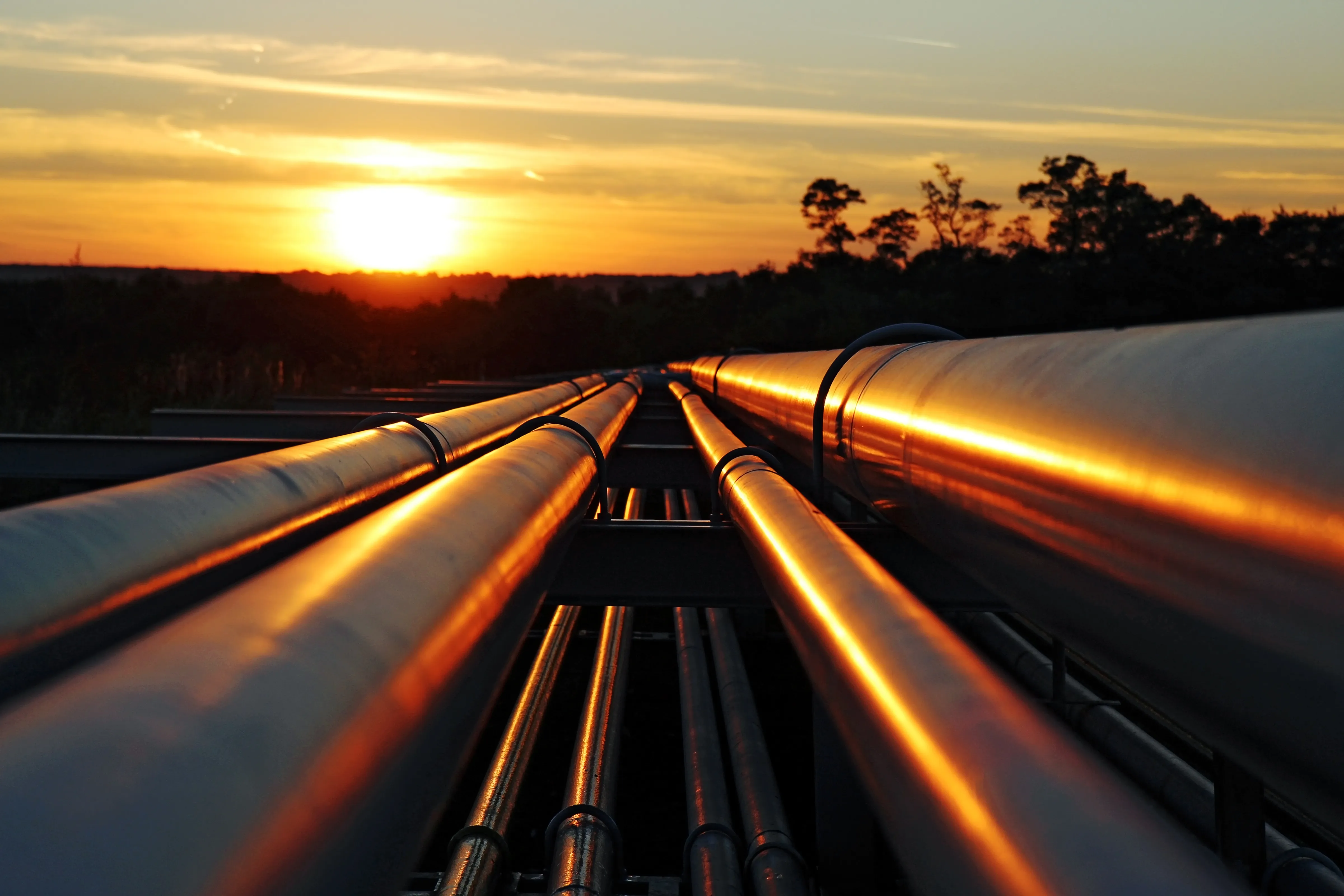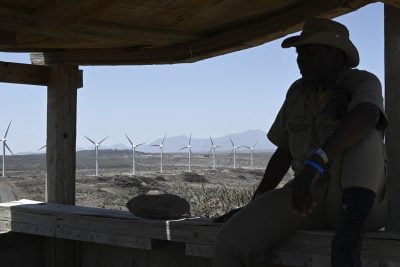The oil-producing potential of Niger comes from its two large sedimentary basins which cover over 90% of its national territory: the west basin (Ullémenden, Tamesna) and the east basin (the Graben system in Djado).
Oil production in Niger, which is operated by the China National Petroleum Corporation (CNPC), began in 2011 on the Agadem block in the east, about a hundred kilometres from the Chad border. At that time the country’s 2P (proven and probable) recoverable petroleum reserves stood at 140m barrels and were concentrated in three deposits: Sokor, Goumeri and Agadi.
Since November 2011, the daily production of around 20,000 barrels has supplied the Zinder refinery exclusively, through a 462.5-km pipeline connecting the oil fields to the refinery. The Zinder refinery mainly produces diesel and super petrol for the domestic market and exports the surplus (50%).
There were intensive exploration activities on the Agadem block between 2008 and 2017, when the CNPC drilled 166 exploration wells, enabling the discovery of 106 new oil deposits containing 2P recoverable reserves of 815m barrels. The petroleum is high quality with an API gravity of 30 degrees and a very low sulphur content.
The three main reservoir horizons targeted by the CNPC works are the Sokor, Madama, and Yogou formations. The majority of boreholes are between 1900 and 2500 metres deep. Drilling costs are relatively low ($3.5m per drilling site on average) and the success rate is more than 90%. Production costs are $6.5 per barrel and the exploration and development costs for each barrel produced are around $8.5, amounting to a total cost of $15 per barrel.
These colossal investments include the drilling of 350 new wells, expansion or construction of eight pumping and primary processing stations, the laying of 1557km of inter-field pipework, a dehydration station, a central station for processing crude oil (90,000 barrels per day), eight electricity stations, 39 generators, 1557km of electrical lines and six residential quarters.
These facilities will enable the production of 110,000 barrels per day, of which 20,000 will be destined for the Zinder refinery and 90,000 will be exported, which is more that six times the current production levels.
Africa’s longest pipeline
The Niger–Benin pipeline, measuring 1950km and connecting the Agadem block in eastern Niger to the Beninese side of Sèmé, will be the longest pipeline in Africa. The construction work began on 5 July 2021.
There are two other oil companies which also operate on other blocks in Niger: the Sonatrach Group (SIPEX) and Savannah Energy. Both of them, in the active exploration phase, have made significant discoveries over the last three years – SIPEX on the Kafra block (on the Algerian border) and Savannah on R3 (acquired from CNPC).
This means that the three companies that conducted intensive exploration activities after setting up in Niger have all made significant discoveries in different basins. Their successes are extremely encouraging for Niger, which hopes to attract new investors to conduct exploration operations on its 41 available petroleum blocks.
To this end, Niger has a high-spec petroleum data centre (CDP) in Niamey, which is open to potential investors wishing to carry out preliminary studies based on previous works (40,000km of 2D seismic surveys,13,000sq km of 3D seismic surveys, 388 sets of well data, 57,000km of magnetic gravimetry, and more besides).
The Niger-Benin export pipeline
Niger’s substantial oil reserves require construction of a new pipeline to transport them for sale on the international market. Niger, Benin and the CNPC group have negotiated bilateral and bipartite agreements for an export pipeline to run between Niger and Benin.
The pipeline will extend along 1950km (1275km in Niger and 675km in Benin) from the initial station in Agadem, Niger, through to the Sèmè terminal in Benin.

With its 20-inch diameter, it will consist of eight pumping stations (six in Niger and two in Benin), 59 valve stations, and a petroleum terminal in Sèmé (with a 2m-barrel storage capacity), including two 15km under-sea pipelines for the purpose of loading the tankers with a million-barrel capacity.The pipeline will have a nominal upper capacity of 100,000 barrels per day and the total investment amounts to $2.1m. The State will hold a 15% share in the pipeline.
This gargantuan infrastructure project straddling Niger and Benin will be the longest pipeline in Africa.
Several hundred kilometres of pipeline segments, along with various equipment and materials, have already been delivered to Benin and Niger. Construction operations are already under way, with the very first pipes soldered on 5 July 2021.
The works will be completed in April 2023, and the first oil delivery is expected to reach the shores of Sèmé in June-July 2023.
An investor-friendly environment
Niger offers a favourable business environment to its investors in the oil sector, including a protective legal regime (the 2017 Petroleum Code, a standard Production Sharing Contract, stabilisation and arbitration clauses, etc), an exploration phase of up to 10 years, a minimum production period of 25 years, a proactive administration, a well-controlled security situation, a significant and growing number of sub-contractors (13 rigs and multiple seismic crews), a relatively low per-barrel cost ($15) including research, development and exploitation), and an export pipeline for which the transport cost will be $15 per barrel over the next 10 years and $6 thereafter.
An attractive tax regime
The tax regime in place includes exemption from VAT and customs duties (for the exploration phase and the first five years of exploitation), a royalty rate of 12.5%, Oil Tax of between 40% and 60%, and a Cost Stop rate of 70%.
Niger’s procedure for awarding petroleum blocks is clear, fast, and transparent. After submitting a request in accordance with the 2017 Petroleum Code, it takes around three months for a block to be awarded. This period will comprise analysis of the request (technical and financial capacity, minimum work programme, etc.), negotiation of the Production Sharing Contract and its approval by the Council of Ministers, contract signature, and finally, the awarding of the Exclusive Exploration Permit.
Equipped with all these geological, operational, legal, fiscal and logistical benefits, Niger is now one of the most important petroleum stakeholders in Africa, ready to welcome investors who want to join in the substantial growth of the country’s oil industry.
Niger’s substantial oil reserves require construction of a new pipeline to transport them for sale on the international market. Niger, Benin and the CNPC group have negotiated bilateral and bipartite agreements for an export pipeline to run between Niger and Benin.
The pipeline will extend along 1950km (1275km in Niger and 675km in Benin) from the initial station in Agadem, Niger, through to the Sèmè terminal in Benin.
With its 20-inch diameter, it will consist of eight pumping stations (six in Niger and two in Benin), 59 valve stations, and a petroleum terminal in Sèmé (with a 2m-barrel storage capacity), including two 15km under-sea pipelines for the purpose of loading the tankers with a million-barrel capacity.The pipeline will have a nominal upper capacity of 100,000 barrels per day and the total investment amounts to $2.1m. The State will hold a 15% share in the pipeline.
This gargantuan infrastructure project straddling Niger and Benin will be the longest pipeline in Africa.
Several hundred kilometres of pipeline segments, along with various equipment and materials, have already been delivered to Benin and Niger. Construction operations are already under way, with the very first pipes soldered on 5 July 2021.
The works will be completed in April 2023, and the first oil delivery is expected to reach the shores of Sèmé in June-July 2023.
Energy sector
Niger, situated in the Sahel region, has considerable and diverse energy potential (crude oil, coal, uranium, hydroelectricity, solar, wind, and even geothermal energy).
However, a number of development challenges remain, such as securing access to modern and sustainable energy services in both rural and urban areas.
To be in step with the evolution of the energy sector, the Nigerien government has undertaken reforms to attract private investors and improve the viability and financial stability of the sector. In order to meet all these challenges, the Government of Niger has adopted the National Electricity Policy Document (DPNE) and the National Strategy for Access to Electricity, accompanied by a Master Plan for Access to Electricity by 2035.
Energy Sector activities cover the following industries: electricity, renewable energies, cooking energy, nuclear power, indoor electrical appliance compliance, and energy information systems.
Read more about Niger's energy sector in our exclusive interview with Mahamane Sani Mahamadou, Minister for Oil, Energy and Renewable Energies of the Republic of Niger.
Want to continue reading? Subscribe today.
You've read all your free articles for this month! Subscribe now to enjoy full access to our content.
Digital Monthly
£8.00 / month
Receive full unlimited access to our articles, opinions, podcasts and more.
Digital Yearly
£70.00 / year
Our best value offer - save £26 and gain access to all of our digital content for an entire year!
 Sign in with Google
Sign in with Google 



